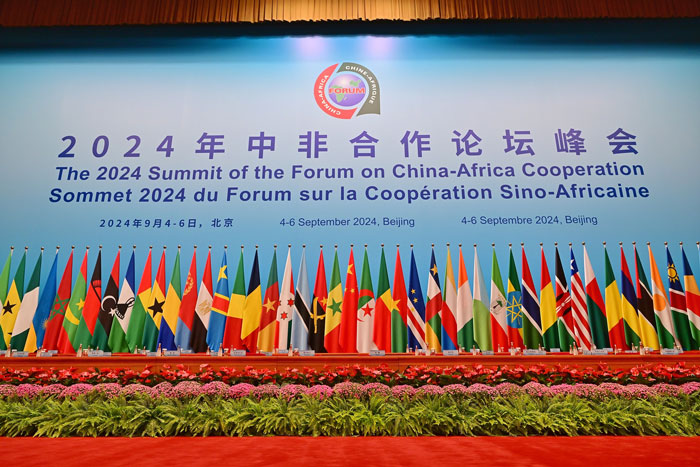

China has granted zero tariff treatment to 33 African least developed countries

On the morning of September 5, the 2024 Beijing Summit of the Forum on China-Africa Cooperation opened at the Great Hall of the People.
In the next three years, we will encourage Chinese enterprises to invest no less than 70 billion yuan in Africa.
Li Yincai, an associate researcher at the Institute of International Studies at the Shanghai Academy of Social Sciences, told Thepaper.cn (www.thepaper.cn) that the zero-tariff treatment will help narrow the existing trade gap between China and Africa, and may play a greater role in the overall trade structure and industrial chain integration of Africa in the future.
In recent years, China-Africa cooperation has made leaps and bounds. In 2023, China-Africa trade reached 282.1 billion US dollars, setting a record high for the second consecutive year. According to the Ministry of Commerce on August 20, by the end of 2023, China's stock of direct investment in Africa exceeded 40 billion US dollars, making it one of the most important sources of foreign investment in Africa. Over the past three years, Chinese enterprises have created more than 1.1 million local jobs, and invested in economic and trade cooperation zones covering agriculture, processing and manufacturing, trade and logistics, attracting more than 1,000 enterprises to the zones.
"These figures fully show that China-Africa economic and trade cooperation has maintained a strong growth rate." Li Yincai said.
At the same time, he further analyzed that behind these figures, China maintains a trade surplus, with a higher amount of exports to Africa and a slightly lower amount of African exports to China. The bilateral trade structure is unbalanced. "The latest policy expands the tax-free items, which will help improve China-Africa bilateral trade and narrow the existing trade gap." Li Yincai said.
In fact, by the end of June this year, China had implemented zero tariffs on 98 percent of tariff items originating from 27 African least developed countries. Earlier, the Global network quoted Nigerian experts as saying that the above tariff policy will help Africa develop production capacity, "is an opportunity for Africa's economic diversification, but also a milestone in China-Africa relations."
Li Yincai believes that in the long run, "African countries that do not enjoy the 'zero tariff' treatment policy can transfer relevant industries to preferential countries through industrial transfer in the future, which will play a greater role in the integration of the industrial chain in the African region in the future."
In terms of agriculture, agricultural cooperation between China and Africa has achieved fruitful results under the frameworks of the Forum on China-Africa Cooperation and the Belt and Road Initiative. China and Africa have always been committed to training agricultural talents and injecting "living water" of talents into Africa's agricultural development.
It is worth noting that four high-level meetings were held during the summit, one of which was "industrialization and agricultural modernization", which shows the common concerns of China and Africa on agriculture.
"The population size of the continent is growing much faster than that of other continents and there is already a food crisis in some parts of Africa." Li Yincai pointed out, "Therefore, it is the first thing for the African continent to achieve its own food and clothing, and then promote modernization on this basis." For example, improve the agricultural structure, agricultural supporting facilities, and the training of agricultural technical personnel."
According to a Xinhua News Agency report in June, in the past decade, China has built 24 agricultural technology demonstration centers in Africa, promoted more than 300 advanced agricultural technologies, and led to an average increase of 30 to 60 percent of local crops, benefiting more than 1 million African small farmers. Aid brands such as hybrid rice and fungus technology have taken root and sprouted on the African continent. At present, Chinese hybrid rice has "taken root" in more than 20 African countries, driving the average rice yield in many countries from 2 tons per hectare to 7.5 tons.
"So there is a lot of room for cooperation between China and Africa in agriculture." Li Yincai said.
"Although China is far east on the map, there are many products from China in our lives. So even though we are in Africa, China is very close to us." Ashu Nyenty, a journalist from Radio and Television Cameroon, told Thepaper.cn, "I believe that in the future this connection will be strengthened and will grow rapidly."





